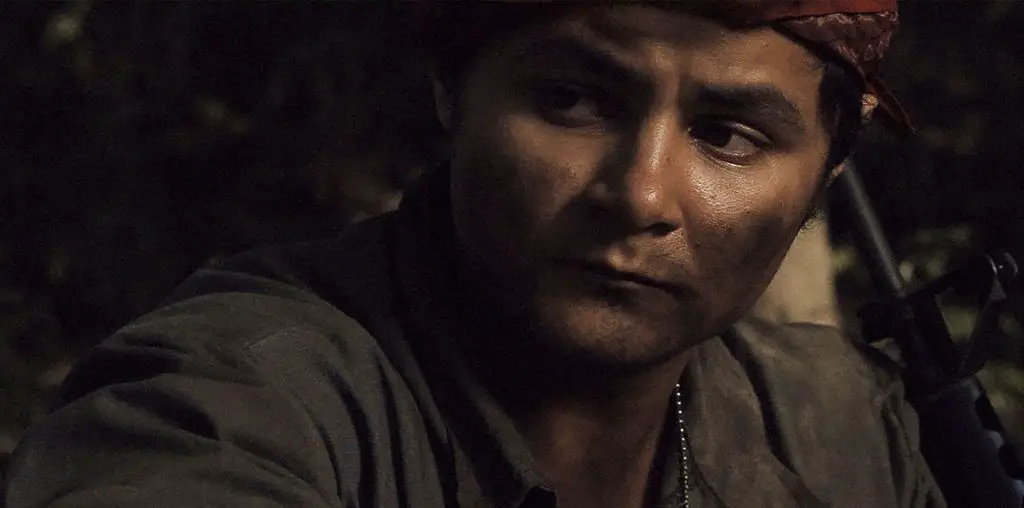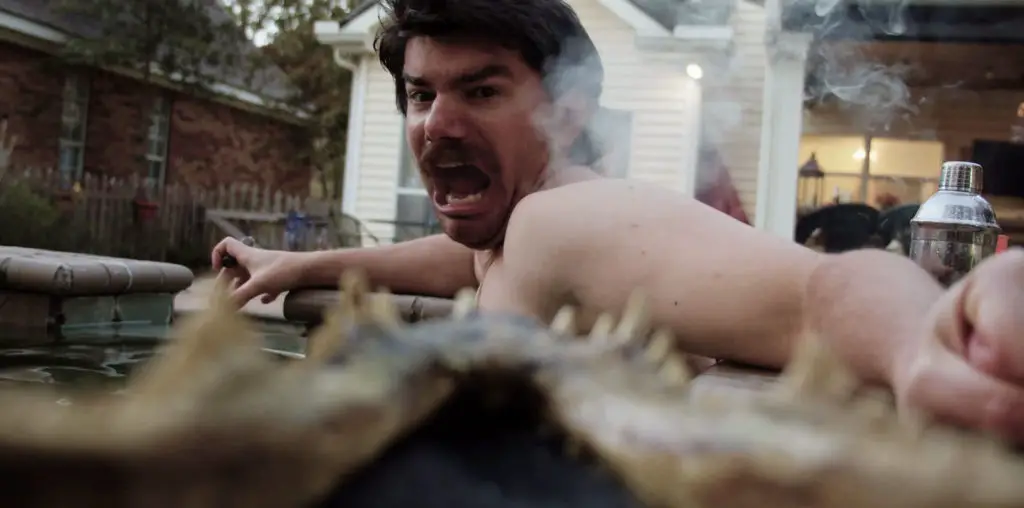
Amidst the endless looking backward engaged in by Jean-Luc Godard’s new film, “Eloge de l’amour,” a little peek in the past’s direction is only appropriate. Time was, when the promise of a new Godard film meant a jolt of vitality, electricity, a sheer aliveness unavailable outside of the films of Godard and his compatriots in the French New Wave. The recently re-released “Band of Outsiders” was a reminder of Godard’s urgent vibrancy, of how his famous formula of “a girl and a gun” could produce cinema of the highest order. Godard in the 1960s was living proof that one did not have to be a pretentious bore in order to be a great filmmaker. His greatest films, including “Band”, “Pierrot le fou”, and “Breathless”, combined a searching, yearning intellect with a playfulness that was infectious. Early Godard films are so full of life that even the deaths that frequently marked their conclusion could not truly put a damper on the proceedings.
Unfortunately, much has changed in the intervening years since “Weekend”, Godard’s last truly relevant, impassioned film. Godard’s filmmaking style has changed dramatically since the 1960s, losing much of the glossy sheen that characterized his early work, becoming more gnarled and inward-looking. The question arises: is it unfair to ask of great artists, of which Godard is unquestionably one, that they give us more of what originally attracted us to them in the first place? The obvious answer seems to be yes, that it is frightfully unfair, and that true Godard fans should follow him wherever his artistic demons take him. However, “Eloge de l’amour” gives the impression of a man who has lost his will to make movies, and even to go on living, a sentiment difficult to empathize with without likewise giving up on life. “Eloge de l’amour” gives off a scent of resignation and desperation unpleasant to the senses. What is most distressing about this attitude is not so much his resignation about changing the world, but rather his seeming admission of defeat in regards to making a captivating film about the sensation. The film never acquires the rolling momentum that served as the glue holding together his disjointed early films. “Band of Outsiders”‘ plot served as a basis, a plain Christmas tree off which to hang his brightly colored baubles. “Eloge” never even bothers to articulate a plot of any sort. At one moment, a character says, “The days of phrases are over”, but Godard never seems to have received the memo; his films is all phrases, with nary a sentence in sight.
The plot, as much as can be gleaned, concerns an artist looking to cast his film, American businessmen in the market for the memories of French Resistance fighters, and discussions of Paris’ poor and the fighting in Kosovo. The film is full of hostility and desperation, at Americans, at the power of the state to destroy love, at war, at globalization. The problem is that beyond this initial hostility, Godard has very little to say. His pastiche of quotations, oblique references, and empty characterization, utilized in a number of films prior to “Eloge”, is ultimately revealed, in this film, at its nadir of pointlessness.
Godard divides the film in two parts, the first in black and white, the second in a super saturated color that seems almost hand-crafted in its painterly richness. The cinematography, courtesy of Christophe Pollock and Julien Hirsch, is exquisite, as is Francois Musy and Christian Monheim’s rich, subtle sound. The second, color half, concerning the Resistance fighters, now elderly, and their decision to sell their stories to Steven Spielberg’s corporation, is more involving than the rather aimless first half, but Godard has either forgotten, or chosen to bypass, the courtesy of providing a substantial plot for his audience. Only on a few isolated occasions does Godard’s playfulness emerge, outlining what is missing from the rest of the film on the whole. “Eloge de l’amour” is more like a blueprint for a film than a film itself, lacking any sense of reality in its characters’ lives, or in the relevance of its creator’s thoughts.
It is significant that the film opens and closes with the question “which amongst the mediums of film, novel, painting, or sculpture would you choose?” The first time, the answer is novel, and the second time, the question is left unanswered, but significantly, the answer is never film. Godard himself seems to be uninterested in making films anymore either, peppering his film liberally with his novelistic, cryptic musings, and his painterly images of the sea, both the literal kind and its metaphoric counterpart in Paris traffic. Godard has repeatedly provided diatribes to the press on the death of film, referring to cinema as extending from Griffith to Kiarostami, and officially calling it a day at that point. Now, he has made a film that reflects this death of film, but the question hangs in the air: why would anyone want to see such a film, especially one so harsh and humorless?
Luis Bunuel, at the end of his similarly lengthy and distinguished career, also felt a dramatic indignation and frustration with his inability to change the corruption and stupidity of the world. Unlike Godard, however, he chose not to create enclosed, retreating art, dedicated to honoring his own sense of frustration, but rather made a series of light, frothy comedies on the subject. Godard could have stood to take a lesson from Bunuel’s book, or for that matter his old compatriot Jacques Rivette, whose new film “Va Savoir” is one of the best of his career, channeling his frustration into a work that his audience could relate to. As it is, they are left standing outside, with no way to interact with the hermetically sealed world of the film.

